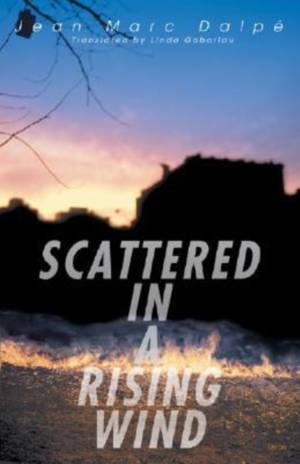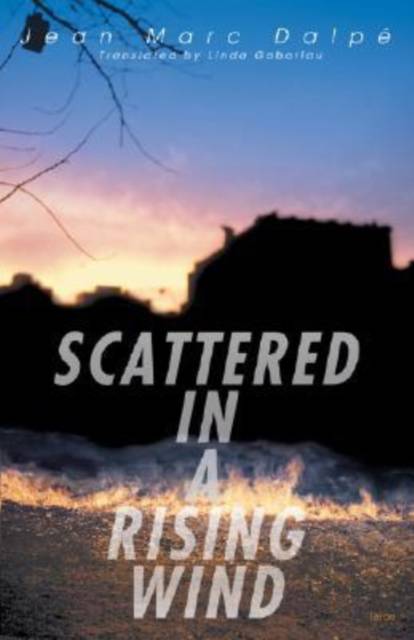
En raison d'une grêve chez bpost, votre commande pourrait être retardée. Vous avez besoin d’un livre rapidement ? Nos magasins vous accueillent à bras ouverts !
- Retrait gratuit dans votre magasin Club
- 7.000.000 titres dans notre catalogue
- Payer en toute sécurité
- Toujours un magasin près de chez vous
En raison de la grêve chez bpost, votre commande pourrait être retardée. Vous avez besoin d’un livre rapidement ? Nos magasins vous accueillent à bras ouverts !
- Retrait gratuit dans votre magasin Club
- 7.000.0000 titres dans notre catalogue
- Payer en toute sécurité
- Toujours un magasin près de chez vous
Description
In a small town apocalypse, the social order of things can no longer prevail against the larger forces brought to bear on its insular, traditional, incestuous community. Marcel, in a cleansing, destructive rage, sets his murderous sights on the powers that rule this world.
Scattered in a Rising Wind records this rush of events barely at the edge of syntax; a teeming imagination always just ahead of the ability to articulate; with a participatory narrator that scrambles to keep up with the unfolding perceptions within the characters that surround him. Set in a tiny claustrophobic mill town north of Sudbury, the language borrows the reader to animate its utterly amoral characters as embodiments of the most elemental of human passions. Almost devoid of the conventions of punctuation, capitalization and other grammar rules designed to control language and enforce its sequential linearity, occasionally breaking its prose margins to become minimalist utterances, the novel constantly moves into "a future that has nothing to do with the past." Yet the past is constantly re-constructed backwards in all its recurring archetypes by the characters, their actions, even their names. Just as the narrator says of the main character, Marcel, "a lot of what he thinks he remembers is invented," the reader is left, in the end, with Marcel's Oedipal revenge, the incestuous passion of a Joseph for a Mary of divine birth, and the barren rose of love echoing like a shot to the head, a tattoo on the heart. There is no time here.Spécifications
Parties prenantes
- Auteur(s) :
- Editeur:
Contenu
- Nombre de pages :
- 160
- Langue:
- Anglais
Caractéristiques
- EAN:
- 9780889224841
- Date de parution :
- 28-10-03
- Format:
- Livre broché
- Format numérique:
- Trade paperback (VS)
- Dimensions :
- 156 mm x 203 mm
- Poids :
- 199 g

Les avis
Nous publions uniquement les avis qui respectent les conditions requises. Consultez nos conditions pour les avis.






